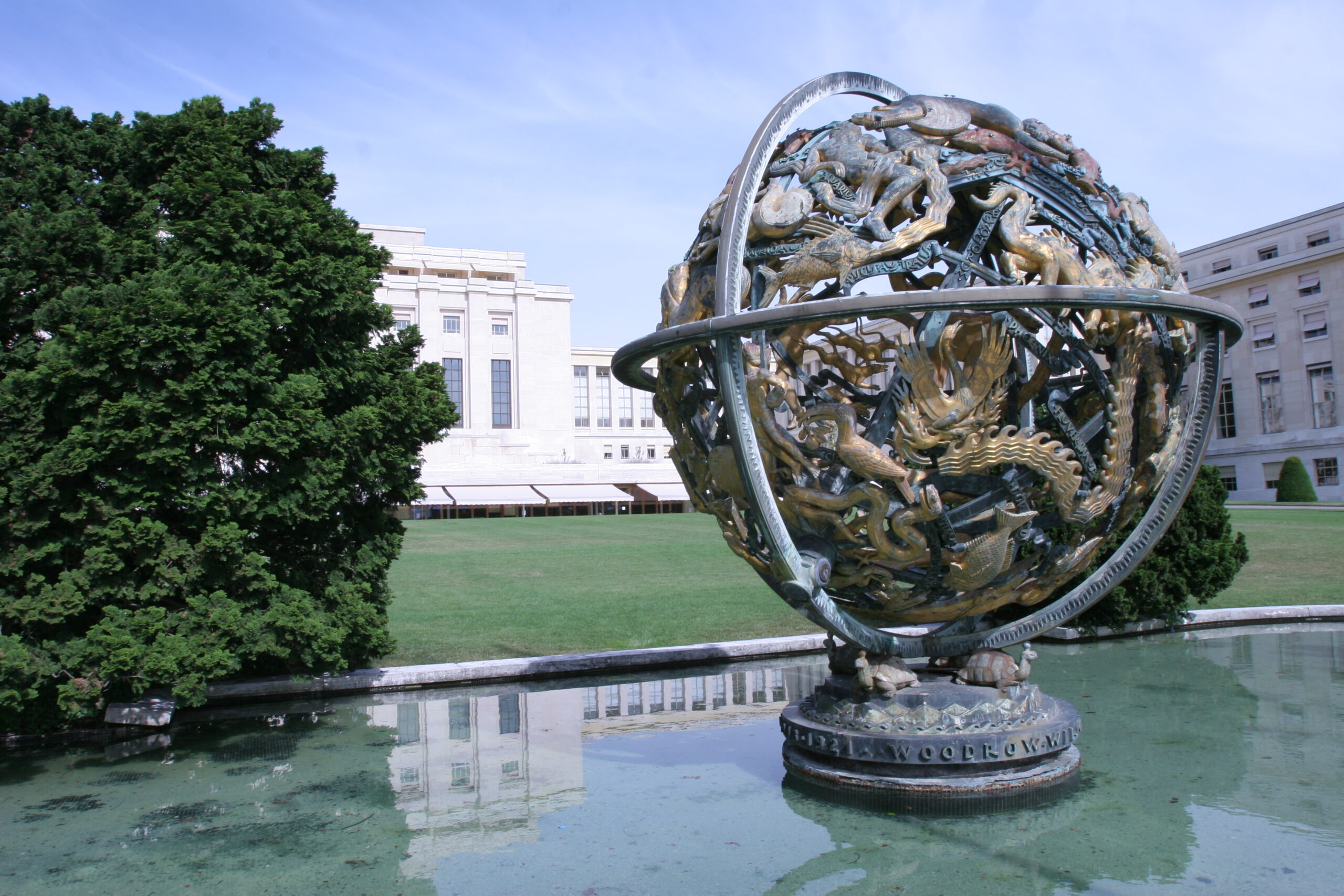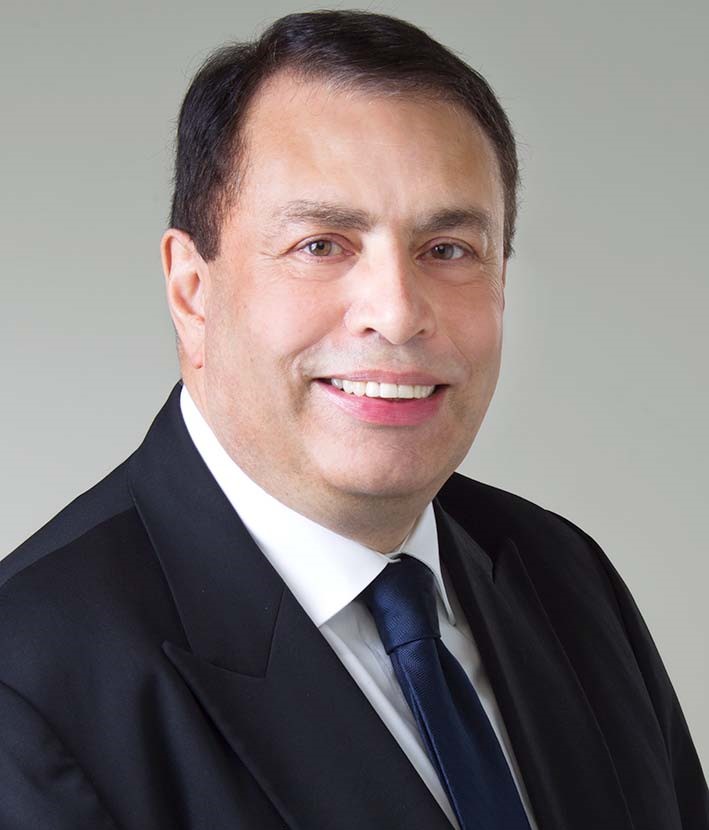Exclusive Interview
The Second Session of the Preparatory Committee (PrepCom) for the Eleventh Nuclear Non-Proliferation Treaty (NPT) Review Conference concluded in Geneva on August 2. Accordingly, PIR Center interviewed Dr. Tariq Rauf, Director of SIPRI’s Disarmament, Arms Control and Non-proliferation Program, Board Member of Atomic Reporters, and Member of the PIR Center Advisory Board. During the conversation, we discussed the workflow during the 2024 PrepCom; Russia-NATO debates over the New START agreement and the ongoing conflict in Ukraine, focusing on ZNPP; the role of coalitions and regional blocks in facilitating the intra-P5 negotiation process; the issue of the TPNW, etc.
Alexandra Zubenko, an M.A. Candidate in the International Dual Degree M.A. Program “Global Security, Nuclear Policy, and WMD Nonproliferation” (MGIMO-MIIS-PIR Center), conducted the interview.
Alexandra Zubenko: What are your general impressions of the first week of PrepCom?
Tariq Rauf: The sessions were going relatively smoothly. However, you could see the tension in all the clusters. For example, at the disarmament cluster, several Western countries were criticizing Russia for suspending New START. Then, the Russians put forward their point of view that as long as the Western countries wanted a strategic defeat of Russia in Ukraine and followed their current policy, it wouldn’t be possible for Russia to engage in this issue. The chairman’s summary said that they “encouraged the Russian Federation and the United States to negotiate a follow-on treaty to New START or a new nuclear arms control arrangement or treaty without delay.“
The NATO countries also defended NATO nuclear sharing and FMCT; they wanted to implement a moratorium on fissile material production for nuclear weapons but didn’t want to include existing military stockpiles of nuclear material. Overall, the discussion wasn’t as hostile as at the last Review Conference.
Alexandra Zubenko: At the last X NPT Review conference in 2022, the debate around the Zaporozhye Nuclear Power Plant (ZNPP) and the Ukrainian conflict became the main stumbling block for the adoption of the final document. What factors do you think will be decisive in whether the conflict in Ukraine and ZNPP, in general, will become a main bone of contention for this Review cycle?
Tariq Rauf: It has already been a bone of contention because Western and European countries believe that the attack or occupation of nuclear power plants in a war in another country affects all three pillars of the NPT. So they have been very vociferous in commenting on that. And then what the European Union does is that many EU members make the same statement. So then they can go to the chair and say, “So many countries mentioned this issue, how can you not put this in your report?“
I doubt Russia would accept language on ZNPP, which would be critical of Russia. Some people believed that Russia might be willing to accept one reference — a relatively moderate reference in only one paragraph — not five paragraphs. We also saw that the Chair navigated that there was only one reference to ZNPP in the summary that encourages “the establishment of the IAEA’s Five Concrete Principles to help ensure nuclear safety and security at the ZNPP.“
Alexandra Zubenko: What potential do you see for coalitions to play a bridging role in this Review cycle? Some suggest coalitions could be instrumental in bridging the gaps between the P5 at the PrepCom. Have you observed any instances of this?
Tariq Rauf: Coalitions like the NPDI, the New Agenda coalition, and the Stockholm Initiative deal with disarmament. In my view, the NPDI only has a little viability. The New Agenda was quite successful in 2000 in getting the 13 steps, but then they had disunity in 2010 when a couple of regional members left; then, the Swedes came up with the stepping stones and the Stockholm initiative for the 2020 conference, but now that Sweden has become a member of NATO, in my view, it has devalued the initiative.
Apart from that, there are other regional groups, such as the African Union, the Non-Aligned Movement, and the Arab Group, but they are pretty much dysfunctional. In the past, people would talk about cross-regional groups, and so on, like NPDI and the Stockholm Initiative, but given the corrosive discussion on Ukraine since February 2022, I personally don’t see any cross-interest coalitions. These political groupings have just become more solidified in their point of view.
It’s intriguing that Russia and Belarus, two countries with a shared history, delivered a joint statement from the Union State of the Republic of Belarus and the Russian Federation[1]. This unexpected collaboration could be seen as a unique form of coalition (smiling).
Alexandra Zubenko: In this Review cycle, negative security guarantees have again become a point on the agenda. The non-nuclear-weapon states call to conclude a binding agreement on negative security guarantees. Would it be possible to reach an agreement on this issue?
Tariq Rauf: Security assurances have been significant for non-nuclear-weapon states, even during the negotiation of the NPT. There is the Security Council resolution 244 on positive security assurances, and then the 984 resolution, adopted in 1995, on negative security assurances. Then, we have security assurances for nuclear-weapon-free zones. So, how will you enforce them even if they are legally binding? These assurances are from the nuclear weapons states, which are the most powerful in the world militarily. And there is no legal body to address such claims. Are you going to go to the Court of Justice? Even if you get a ruling in your favor, how will you get a nuclear state violating negative security assurances to change its position?
So, I don’t put much faith in negative security assurances or no first use of doctrine. However, many non-nuclear-weapon states feel that if they have a treaty, it will at least give them political legal leverage about threats of use or actual use of nuclear weapons against them.
Some nuclear-weapon states also say that the security assurances are only for those states in good standing with the NPT. So, who decides which country is in good standing? Is it the IAEA with respect to the safeguards agreement? Or is it the Security Council? Or is it one of the N5(P5) that unilaterally decides that this country is not in good standing?
Alexandra Zubenko: What do you think is the maximum we can expect in the wording on negative security guarantees in the potential final documents for the 2026 Review Conference?
Tariq Rauf: I doubt that NWS will accept legally binding measures, benchmarks, timelines, or stringent reporting on nuclear doctrines. However, the five nuclear-weapon states might commit to signing the protocols for the negative security assurances to the nuclear-weapon-free zones agreements. I think that’s the most we can expect.
Alexandra Zubenko: What are the current developments with the Middle East WMD-free zone at the PrepCom? How did the war in Gaza affect this discussion?
Tariq Rauf: I understand that the Gaza war has presented significant challenges and caused a big setback, although almost nobody talks about it. The Gaza war continues, and it has poisoned the relationship. So, the UN conference in New York continues to meet every November for one week or so at the working level. I personally don’t see any prospects for that at the moment.
Alexandra Zubenko: But at the last NPT Review conference, there were many behind-closed-doors discussions on the ME nuclear-weapon-free zone. Is this still the case today?
Tariq Rauf: Most likely not. The key players, including the N5(P5), are fractured. Russia was active after the 2022 NPT review conference and held a workshop in March 2023 at the IAEA on the Middle East nuclear-weapon-free zone. All Arab countries represented in Vienna, the UK, and China showed up, but Israel and the US didn’t.
There was talk that Russia might hold another such workshop at the IAEA, but it hasn’t happened yet.
Alexandra Zubenko: Another significant development in this Review cycle is the growing acceptance of TPNW. The increasing number of states participating in the discussion is a positive sign. It indicates a shift towards a more inclusive and comprehensive approach to nuclear disarmament. Do you share this optimism about the TPNW’s acceptance?
Tariq Rauf: Well, the core group of the TPNW, as I am informed, decided not to push the TPNW forward in the NPT discussions too much; they will be trying to get a reference, and that’s it. They don’t want to provoke confrontation with the NATO countries and nuclear-weapon states. On behalf of 90+ TPNW State Parties, Kazakhstan delivered a joint statement as the President-designate of the third TPNW conference of State parties scheduled for New York in 2025.
Their more significant concern is that the countries that have signed but have yet to ratify the TPNW are under much pressure from the different nuclear-weapon states not to approve it. So, the ratification process has greatly slowed down. The NWSs don’t want the TPNW to become the norm of customary international law, but if there are more than 100 ratifications or so, it will become customary law[2].
Also, the nuclear-weapon states did not want to use the word “welcome” when referring to the two meetings of the TPNW. That’s why, in the summary for this conference, they used the word “noted” when mentioning these two meetings.
[1] States Parties to the Treaty on the Creation of a Union State of the Republic of Belarus and the Russian Federation, delivered by Belarus. July 22, 2024. URL: https://reachingcriticalwill.org/disarmament-fora/npt/2024/statements.
[2] So far, 70 states have signed and ratified the TPNW, and 23 states have signed but not ratified it yet. URL: https://treaties.unoda.org/treaties.
Key words: Nuclear Nonproliferation; International Security
NPT
F4/SOR – 24/08/05




